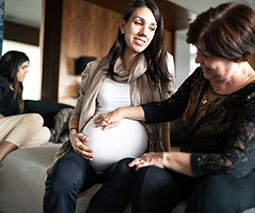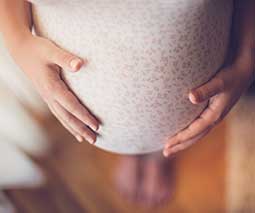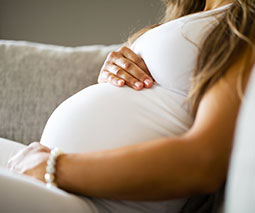Is everything we know about pregnancy and ‘baby brain’ actually wrong?

‘Baby brain’ affects many a pregnant woman, but the reasons behind – and even symptoms of – this phenomenon are still being debated.
Forget what you know about baby brain!
Dr Sarah McKay, author of The Women’s Brain Book, thinks ‘baby brain’ might be down to more than oft-touted hormonal shifts. She also stressed that there are lots of positives to these baby brain shifts, anyway!
But let’s backtrack a little and talk about what the experts have told us about the much-maligned ‘baby brain’ so far. (Let’s face it, ‘baby brain’ gets a bad rap!)
A 2018 study found that pregnancy changes the brain’s grey matter, perhaps due to pregnancy hormones, and that those changes can persist until babies reach the toddler stage.
These grey matter changes affect the areas of the brain that govern social cognition – how we register and deal with others – like tiny babies. These shifts have also been thought to affect women in other ways – including contributing to that ‘brain fog’ that pregnant women often complain of.
There’s much talk of the grey matter actually shrinking during pregnancy too.
“Given women experience huge hormonal shifts during pregnancy, it’s likely that increases in hormones oestrogen, progesterone and oxytocin play an important role in facilitating these cognitive changes,” Deakin University’s wrote in a piece about ‘baby brain’ for The Conversation.
Optimising the brain
But Dr Sarah Mckay suggests that what happens in women’s brains when they’re flooded with pregnancy hormones is actually … all kinds of good things!
“Why are we not talking about how women become cognitively sharper in pregnancy? Reflecting on the research out there we should be telling stories of the positive outcomes,” she asks, The Sydney Morning Herald reports.
Dr McKay notes that this ‘brain shrinking’ points to something diminishing going on, but it may actually be a process similar to what happens during adolescence. Indeed it’s perhaps better described as ‘thinning’ and a ‘refining’ of how the brain works.
A sort of optimising which “prepares a mind, a brain for motherhood.”
In other words, we need to switch up the language and look more closely at what’s going on. Women seem to be gaining mum superpowers … not turning into docile dummies when these shifts occur.
Sleep deprivation?
A study by Deakin University suggested that “baby brain” affected memory, attention focus, decision-making and planning.
But some experts now suggest pregnant women’s issues with memory, focus and other functions might be down to something else altogether – sleep deprivation!
And when you think about it, those negative symptoms associated with ‘baby brain’ mimic those experienced when we go without sleep – pregnant, woman or not!
Pregnant women may be sleep deprived for all kinds of reasons – restless legs, increased anxiety, body aches, needing to pee, pressure caused by the baby’s position are just a few.
It certainly feels much more positive to attribute those focus shifts and other baby brain symptoms to mums-to-be not getting their required quota of sleep.
And rather than casting expectant mums as ditzy or vague, to note that they’re actually awesome, powerful and doing all kinds of amazing work behind the scenes. They just need a heck of a lot more sleep, dammit.
Read more at The Sydney Morning Herald.









